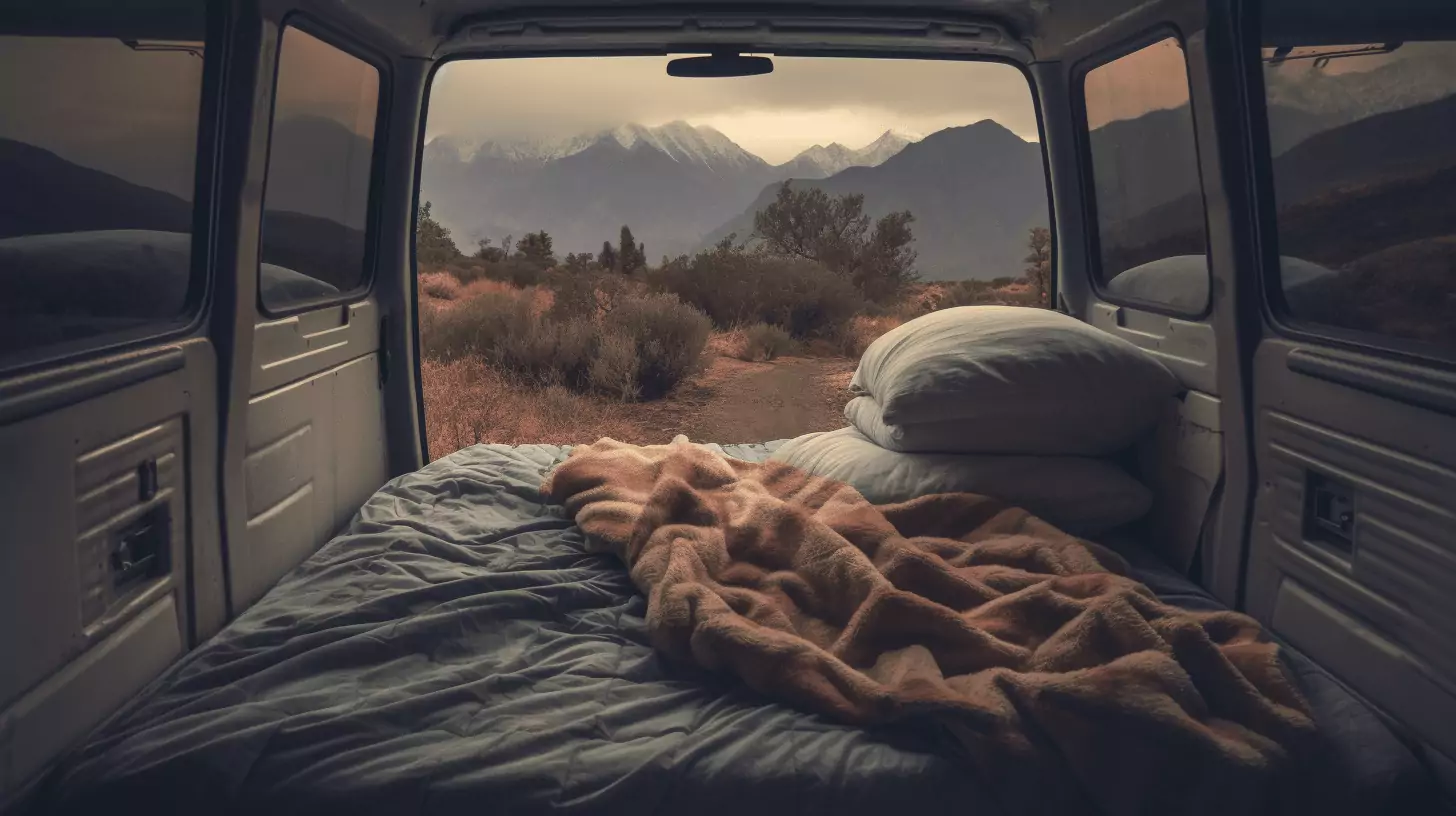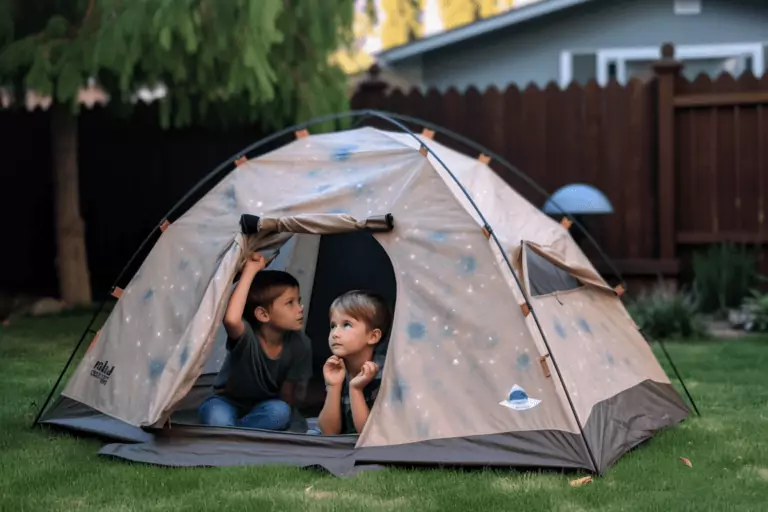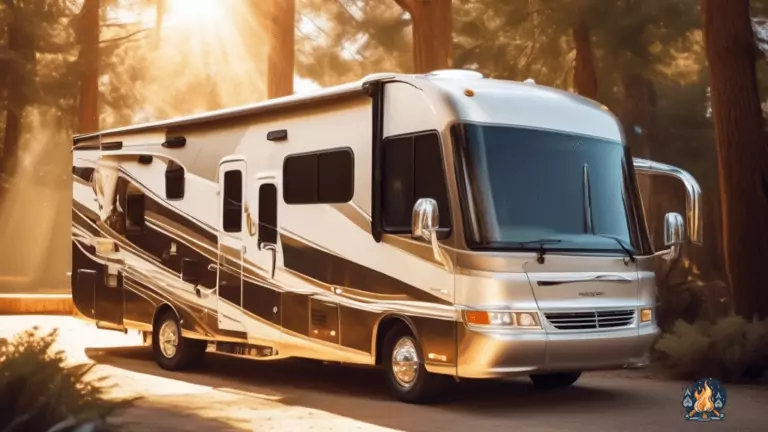What Is Stealth Camping
by Ryan Carter • Updated: January 30, 2024
Discover the ultimate guide to stealth camping! Learn how to camp in the wild without being noticed. Click now!

Have you ever wanted to escape the crowds and noise of established campgrounds and immerse yourself in the beauty of nature? If so, you might be interested in stealth camping. This practice involves setting up camp in a secluded area without the permission or knowledge of landowners or authorities.
Stealth camping is not for everyone, but for those who enjoy the thrill of adventure and solitude, it can be a rewarding experience. However, there are legal and ethical considerations to keep in mind, as well as essential gear and tips for a successful trip. In this article, we will explore what stealth camping is, why it appeals to some people, and how to do it responsibly.
Defining Stealth Camping
So, you may be wondering, what exactly is stealth camping? Well, it’s essentially the act of camping in an undesignated or unauthorized area without attracting attention or being noticed by others. This type of camping is often done by backpackers or hikers who want to avoid the fees and regulations of established campsites, or by travelers who need a place to sleep for the night but don’t want to pay for a hotel room.
Stealth camping can be done in a variety of locations, from city parks to national forests to private property (with permission, of course). The key is to find a spot that is out of sight and out of mind, where you won’t be bothered by curious passersby or park rangers. It’s important to note that not all areas are suitable for stealth camping, and it’s important to practice Leave No Trace principles and respect the environment and any local laws or regulations.
The Appeal of Stealth Camping
You might find yourself drawn to the idea of sleeping under the stars, hidden away from civilization, and experiencing the freedom and adventure that comes with it. There is something exciting about finding a secluded spot in nature, setting up camp, and enjoying the peace and quiet that comes with it. For some, the appeal of stealth camping lies in the challenge of finding the perfect spot without getting caught. For others, it’s the sense of independence that comes with being self-sufficient in the great outdoors.
Many people who enjoy stealth camping appreciate the simplicity of the experience. Without the distractions of modern life, they can focus on the basics of survival and enjoying the natural world around them. There is also a sense of accomplishment that comes with successfully finding a spot to camp without anyone else around. It requires a certain level of skill and resourcefulness to make it work. Whether you’re seeking solitude, adventure, or just a break from the hustle and bustle of daily life, stealth camping can be a rewarding way to experience the great outdoors.
Legal and Ethical Considerations
When considering the legality and ethical implications of camping in non-designated areas, it’s important to be aware of the environmental impact and potential consequences. In many places, stealth camping is illegal and can result in fines or even arrest. Additionally, camping in areas not designated for camping can have a negative impact on the environment. Campers may disrupt natural habitats, leave behind trash, and damage the landscape. It’s important to respect the environment and follow Leave No Trace principles when camping, even if it means sacrificing the allure of a secluded spot.
In addition to environmental considerations, there are also ethical implications of stealth camping. Camping in non-designated areas may infringe on the rights of private property owners or interfere with other people’s use of public land. It’s important to be respectful of others and their property, and to seek permission before camping on private land. Additionally, camping in areas not designated for camping can put the safety of the camper at risk. Without proper facilities or safety measures, camping in secluded areas can leave campers vulnerable to potential dangers such as wildlife encounters or accidents. Overall, it’s important to consider the legality, environmental impact, and ethical considerations before engaging in stealth camping.
Essential Gear for Stealth Camping
Gear is crucial for blending in and staying safe while spending the night in the great outdoors. The right equipment can help you avoid detection while also ensuring that you have everything you need to stay comfortable and secure. One of the most important pieces of gear for stealth camping is a high-quality tent. Look for a tent that is lightweight and easy to set up, but also sturdy enough to withstand wind, rain, and other harsh conditions. You may also want to consider a tent with a camouflage pattern or a muted color that will help it blend in with the surrounding environment.
In addition to a tent, you’ll also need a sleeping bag or other type of bedding to keep you warm and comfortable throughout the night. A high-quality sleeping pad can also make a big difference in your overall comfort level. Other essential gear for stealth camping includes a headlamp or flashlight, a water filter or purification tablets, and a first-aid kit. You may also want to bring a small stove or other cooking equipment, as well as food and water to sustain you during your stay. With the right gear, stealth camping can be a rewarding and enjoyable experience that allows you to connect with nature while also staying safe and comfortable.
Tips for a Successful Stealth Camping Trip
To have a successful stealth camping trip, it’s important to scout out potential locations ahead of time and practice Leave No Trace principles. When scouting for a location, look for areas that are secluded and away from popular trails or campsites. Be mindful of private property and always obtain permission if necessary. It’s also important to arrive at your location during daylight hours to avoid attracting attention and to set up camp quickly and quietly.
In addition to scouting out a good location, it’s important to practice Leave No Trace principles to minimize your impact on the environment. This includes packing out all trash and food waste, using established fire rings or portable stoves for cooking, and avoiding damaging vegetation or disturbing wildlife. By being responsible and respectful of the environment, you can help preserve these natural areas for future generations to enjoy.
How Can I Make Stealth Camping More Comfortable?
If you want to make stealth camping more comfortable, there are several tips for camping comfort that you can follow. Choose a good sleeping pad and a well-insulated sleeping bag to stay warm and comfortable at night. Additionally, consider investing in a lightweight and portable camping chair for some added comfort during your trip.
Frequently Asked Questions
Is it safe to stealth camp in urban areas?
It is not recommended to stealth camp in urban areas as it can pose safety risks. It’s important to respect local laws and regulations, and to carefully choose a discreet location away from public view.
How do you find a good stealth camping spot?
To find a good stealth camping spot, look for areas that are secluded, out of the way, and have natural camouflage. Avoid private property and areas with high foot traffic or security.
What are some common mistakes to avoid while stealth camping?
To avoid getting caught while stealth camping, common mistakes to avoid include making too much noise, leaving evidence of your presence, and choosing a spot that is too close to civilization or private property.
What should you do if you get caught while stealth camping?
If caught while stealth camping, remain calm and polite. Explain your situation and apologize for any inconvenience. Offer to leave immediately and be respectful of the property owner’s wishes.
Can families with children go stealth camping?
Yes, families with children can go stealth camping. However, it is important to research and choose safe and legal areas to camp, and to practice Leave No Trace principles to avoid damaging the environment.
Conclusion
In conclusion, stealth camping can be a thrilling and rewarding experience for those who enjoy outdoor adventures. It offers the opportunity to explore new areas and connect with nature on a deeper level. However, it is important to consider the legal and ethical implications of stealth camping and to always leave no trace behind. Proper gear and planning are essential for a successful trip, and following these tips can help ensure a safe and enjoyable experience. So, if you’re up for a challenge and looking to escape the crowds, give stealth camping a try and see where it takes you.

Ryan Carter is a passionate RVer and adventure seeker. He has embarked on numerous cross-country road trips, discovering hidden gems and breathtaking landscapes along the way. Ryan enjoys documenting his experiences, providing practical advice, and reviewing the latest camping gear. From boondocking in remote locations to navigating national parks, he’s always ready for the next exciting camping adventure.
Like This Article?
Share with your friends
Table of Contents
Latest Articles
Keep Reading
-
Useful Tips For RV Plumbing
Keep your RV plumbing in top shape with these expert tips. Don’t let plumbing problems ruin your road trip! Click now to learn useful RV plumbing tips and ensure a hassle-free journey.
-
Camp At Home: Spark Your Kids’ Love For Adventure!
Unleash your kids’ inner adventurer with our Camp At Home guide. Fun, easy, and affordable activities for the whole family. Start exploring now!
-
Maintaining And Lubricating Your RV Slide Outs: Tips And Tricks
Learn how to maintain and lubricate your RV slide outs for smooth travels! Follow these expert tips and tricks for hassle-free maintenance. Click now for a stress-free RV experience.



